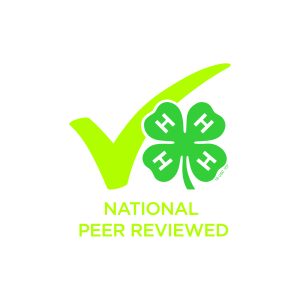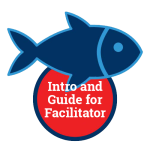Sustainable Fishing 4-H Science Toolkit
Coastal Maine ecosystems are important and unique to Maine for many reasons, one of them being Maine’s fishing industry, which has undergone changes in the last century. Some of these changes include warming temperatures, population collapses, stories of resiliency, and migrating species. With a collaborative community mindset, Maine is looking for ways to restore and progress sustainable practices to ensure that Maine’s coastal ecosystems thrive both environmentally and economically.
The Sustainable Fishing 4-H Science Toolkit was developed to introduce youth in Grades 3-5 to what kinds of animals are fished for in Maine, what the difference between sustainable and unsustainable fishing is, and how DNA can be used to track what species are present and/or absent in Maine waters. In this toolkit, youth will explore and investigate various methods of finding fish, including modeling how DNA is used to detect species’ presence in the water.
This curriculum is made up of a collection of eight engaging lessons designed to be hands-on and youth-centered. These activities were developed in collaboration with researchers on the Maine eDNA (environmental DNA) project.
In this new, innovative toolkit youth will explore a variety of animals that are fished for in Maine and the various methods of how to find them. Bodies of water are huge! How can we narrow down where fish could be found and if they are actually there? In a series of eight activities, youth will create maps with fish species, scavenge for evidence of animals, and model how DNA can be used to determine whether an animal is present in a body of water. By exploring relevant phenomena, youth have the opportunity to persevere through puzzling activities, catch each other’s fish populations and investigate as crime scene scientists. Throughout these fishing-related activities, youth will consider which practices are sustainable versus unsustainable, working towards bettering the ways we interact with the environment and fishing industries.
If you need assistance with these activities please email us: 4-HScience@maine.edu.
To reserve this toolkit, and find out what additional toolkits are available, visit the 4-H STEM Toolkits home page.

Interested in Other 4-H Toolkits Offered? |
Acknowledgments
This kit was developed by the University of Maine Cooperative Extension as part of the Maine-eDNA research, education, and outreach program.
Principal Contributors: Gabrielle Brodek, Sarah Sparks, and Laura Wilson
Special Thanks: Beth Haynes, Carly Dickson, Eric Brooks, Heather Zybas, Kathryn Thomas, Lacey Todd, Laurie Daniels, Nicki Ritchie, Sara King, Tonya Prentice, scientists at Bigelow Laboratory for Ocean Sciences, Dr. Mike Kinneson’s Evolutionary Applications Lab at the University of Maine, Bradley Erdman, Geneva York, Grayson Huston, Gregory LeClair, Julia Sunnarborg, Samantha (Sam) Silverbrand, Zachary Wood, the Wabanaki Youth in Science (WaYS) program, Allison Ogle, Laurie Bragg, Vanessa Klein.
Design, Illustration, and Production Assistance: Jessy Brainerd, Laurie Bragg, and UMaine Extension Communications and Marketing Team members Cindy Eves Thomas, Webmaster, Michelle Snowden, Web Professional, and Tracey Ferwerda, Publications Manager.
Supported by National Science Foundation award #OIA-1849227 to Maine EPSCoR at the University of Maine.

This project is part of the RII Track-1: Molecule to Ecosystem: Environmental DNA as a Nexus of Coastal Ecosystem Sustainability for Maine (Maine-eDNA) at the University of Maine.

 4-H STEM Toolkit:
4-H STEM Toolkit: